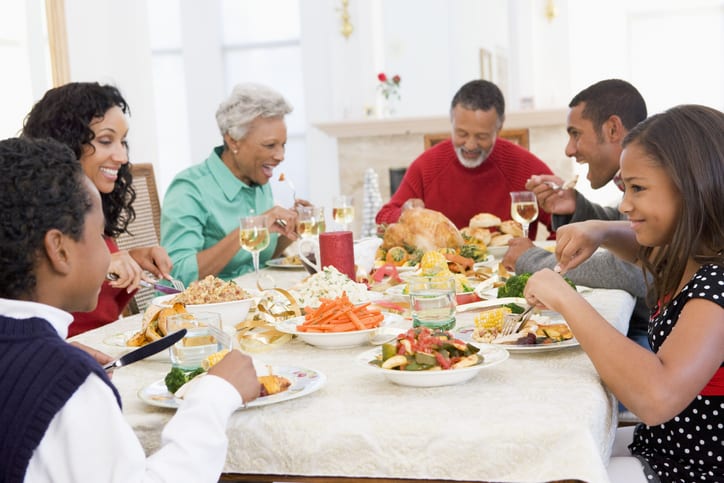<< Back
Talking Family Health Histories Over Thanksgiving Dinner

November 16, 2017
Thanksgiving is a day to gather with family and friends, share a meal and spend time with the ones we love.
Conversation is an inevitable — and often awkward — part of the day. If you and Uncle Henry find yourselves at opposite ends of the political spectrum, and your mom is questioning the way you’re raising your children (or, nagging the childless among us about our plans for having children), you’re probably already thinking of ways to turn the conversation to slightly less polarizing topics.
Here’s a conversation-starter to consider: Tell me about our family’s history. Specifically, our health history.
Besides being America’s official day to give thanks, the fourth Thursday of each November is also National Family Health History Day, as declared by the Office of the U.S. Surgeon General.
“Family (health) history influences you more than you probably know,” said Beverly Tenenholz, a licensed genetic counselor and coordinator of the Genetic Counseling Program for the Hartford HealthCare Cancer Institute. “A family history of cancer, or heart disease or hypertension or stroke or dementia, may have some suggestions for your own personal health.
“They’re like guideposts,” Tenenholz said of health problems that run in families. “Family history doesn’t predict what’s going to happen to you — your genes are not like anyone else’s. But if you have a family history of (certain health problems), it’s important to pay attention to those health issues.”
Pay attention and act. Take simple steps to mitigate those issues. These could include getting cancer screenings at an earlier age, or changing diet and exercise routines to improve your heart health.
Thanksgiving provides a unique opportunity to hold these important conversations.
“Thanksgiving is for all of us,” said Tenenholz. “It’s a good time (for health history conversations) because people are more likely to have some connection, or simply be thinking of and be more in contact with family on these days.”
How do you start this particular conversation? Easing into it can help.
“You can start off by just saying, ‘I’ve been thinking about our family health history, and I find that I don’t know as much about it as I would like to,'” said Tenenholz. “‘Tell me more about Aunt Esther. I want to know about her. Did she have any important health issues that would be good for us to know?’
“I’ve worked with families where the conversation started because somebody’s doctor brought up the fact that it’s important to know your family history, and that person took it to heart, went to their family and asked.”
Equally important is to head into the day with a few specific ideas about information you really need for the sake of your own health — and to have a pen and paper ready to write down the vital details.
“Before you go to Thanksgiving, write down what you want to make sure you ask, such as heart disease or cancer,” said Tenenholz. “It can really lead to a conversation that pulls in the entire family because everybody may know a little something that somebody else didn’t.”
National Family Health History Day has been recognized since 2004 during the month of November and is sponsored by the U.S. Department of Health and Human Services. For more information or guidance on starting this important conversation with your family, click here.